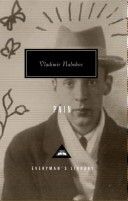
Reviews
Miles Silverstein@thewaxwingslain
jack@statebirds
Katie@katie_____ad
Will Vunderink@willvunderink
surtified™@heartrender081
Nelson Zagalo@nzagalo
Arden Kowalski@jonimitchell
Simon Elliott Stegall@sim_steg
Eugenia Andino@laguiri
Jade Flynn@jadeflynn
Daryl Houston@dllh
Hannah Wright@hw-168
baikalsturgeon@baikalsturgeon
claire@danjjakass
Liz@lizetteratura
juana de arco si estuviera cronicamente online@peperina_2004
Alawander Bouston @vonnebeergut
Liz@lizetteratura
Kate@pinkorangered
S@sjsanc
Lindsy Rice@lindsyrice
Joshua Line@fictionjunky
D@remarkably
David McDonagh@toastisme
Highlights
juana de arco si estuviera cronicamente online@peperina_2004
juana de arco si estuviera cronicamente online@peperina_2004